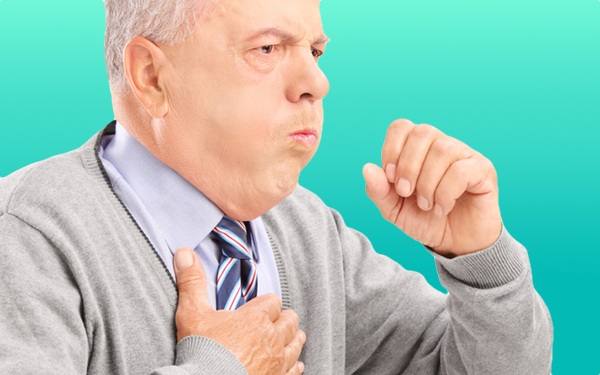The Fluid Learning News+
First Aid Myth Busters No.1 – Coughing to prevent a heart attack
- June 27, 2013
- Posted by: Ben Cleaver
- Category: First Aid Myth Busters

Would you be worried if I said you have a 50% chance of experiencing a Myocardial Infarction before your 70th birthday? Maybe?
If you’re a medical professional you already know what we’re talking about here. In fact you probably call it for the sake of time and syllables, a “Myo-infarc”. Drop that one at your next social function and see your perceived social status climb a notch or two.
The rest of us might have already guessed that a myocardial infarction (officially an Acute Myo-Infarc or AMI) is the fancy name for a heart attack, which occurs when more than 85% of an artery supplying blood to the heart is blocked by fatty plaque.
Wait a second… I stand a 1 in 2 chance of having a heart attack before 70?
Going by current Australian statistics, yes. It’s a little closer to 1 in 3 for women, although not so if you smoke. They are prickly stats and whether it ends up being you or someone you know, the chances are pretty high that one day you might find yourself at the scene when a heart attack strikes.
It’s invaluable then to recognise the signs and know how best to respond.
Enter myth in question: Coughing to prevent heart attack
There’s been an email flying through cyber space for over 10 years now, recommending that if someone was caught alone experiencing symptoms of a heart attack that “these victims can help themselves by coughing repeatedly and very vigorously… with deep breaths” as a form of do-it-yourself CPR or “Cough CPR” as it’s now been coined.
The idea being that “deep breaths get oxygen into the lungs and coughing movements squeeze the heart and keep the blood circulating”.
So could “Cough CPR” save me from a fatal heart attack?
Let’s put this one to bed really quickly shall we? Those in need of CPR are those who have suffered a cardiac arrest, meaning their heart has stopped pumping blood around the body. There are two clear signs of cardiac arrest; 1) the person is unconscious and, 2) their breathing is abnormal or non-existent. They are down for the count.
So have you ever tried coughing while you’re unconscious? “What do you take me for, a fool?” Hey, I wasn’t the one forwarding the email to all my friends and family. You see our dilemma.
You might as well tell someone to perform their own open heart surgery, as both procedures are as impossible as the other. That’s why they call it unconsciousness I guess.
Cough CPR is busted but could coughing while still conscious help?
Another theory might be that coughing could prolong consciousness a little or help to “sweep out the cob webs” in the arteries from where a heart attack originates? For a conclusive answer I turned to First Aider trainer and experienced paramedic, Glenn Dudley.
“Ludicrous!” says Glenn.
“Coughing does not get rid of fatty plaque out of an artery… you need to go to a catheterisation lab and have stents put in to achieve that.”
Further to this, “when someone coughs, you get a raised intracranial pressure (that’s the pressure in your Mr Potato), which can then raise mean arterial pressure (blood pressure)”. Most heart attack victims will already have high blood pressure so in effect, coughing may actually worsen their condition.
Thanks Glenn. I think our job is done here. The verdict?

Setting the record straight
When it comes to heart attacks, recognising the early warning signs is key to getting the best outcome.
The movies aren’t real. Sorry to burst your Hollywood bubble, but the crushing chest pain and sudden collapse is not the usual and most victims have warning signs well before this occurs.
The signs of a heart attack could include one or more of the following:
- pain or discomfort in the chest, shoulder, jaw or arm
- pale, sweaty skin
- shortness of breath
- nausea or vomiting
- feeling dizzy or light-headed
What to do if someone is having a heart attack
The best response to any of those signs is to act early by calling 000 (or your country’s emergency number).
Provide reassurance, encourage rest and make sure the casualty takes any medication that their doctor has prescribed in case of chest pain.
If you’re the victim, your energy is best spent getting help from a bystander or calling emergency services yourself and then resting until help arrives.
References and further reading:
American Heart Association – Cough CPR
Heart Attack Facts Website (Heart Foundation of Australia)
Author:Ben
Leave a Reply Cancel reply
You must be logged in to post a comment.
